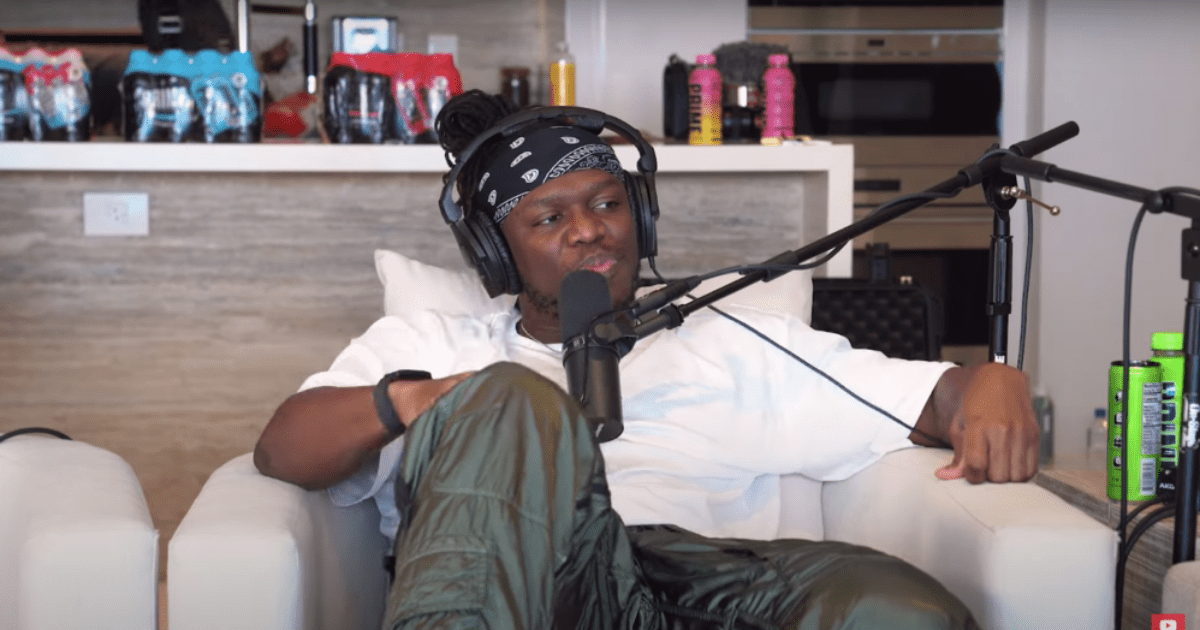KSI Speaks Out
KSI, a prominent critic of Jake Paul's upcoming fight with Mike Tyson, revealed that Evander Holyfield contacted him privately to arrange a match. The 61-year-old boxing legend reached out to KSI following the announcement of Paul and Tyson's bout scheduled for July 20 in Texas.
The Controversial Clash
KSI expressed his concerns about the significant 30-year age gap between Jake Paul and Mike Tyson, labeling the potential fight as "low hanging fruit" that he did not want to be a part of. The YouTuber made these statements during an appearance on Paul's brother Logan's podcast.
Details on the Mega-Fight
While specific details about the fight between Jake Paul and Mike Tyson are yet to be released, Paul's business partner confirmed that no headgear will be worn during the match. Tyson, who officially retired in 2005, made a comeback for an exhibition bout in 2020 against Roy Jones Jr., which ended in a draw.
Clash of Words
In response to KSI's criticism, Jake Paul fired back during a live stream, highlighting the differences between him and the British YouTuber. Paul emphasized that Tyson was willing to fight him and signed the contract, unlike KSI who he accused of focusing on YouTube videos instead of revolutionizing the sport of boxing.

Frequently Asked Questions
How do boxers maintain weight and their weight class?
Boxers keep their weight under control by following a rigid diet and a specific training program. Dieticians work with boxers to create a diet that allows them to achieve their weight-class target without sacrificing energy and nutrition. It is important to maintain a regular exercise routine and check your weight regularly, especially as you approach a fight. Weight management can be a strategy that can cause health problems or poor performance if it is not done correctly.
How can amateur boxers become professional?
The transition from amateur boxing to professional requires a significant increase in training intensity and mental preparation. A boxer who wants to become a professional must have a solid track record. This is usually achieved by competing in local and national competitions. It is crucial to acquire a boxing license, and align yourself with experienced trainers and managers who can guide your career decisions and secure you professional bouts.
What are key elements of a fighter’s training regimen?
A boxer’s training program is typically composed of a few key components. They include technical skill building, tactical drills and strength and conditioning. Sparring and mental training are also included. Technique-focused workouts improve punch accuracy and defensive maneuvers, while tactical drills develop fight strategies. Sparring is a great way to gain practical experience. Conditioning exercises improve athleticism. Mental training helps build confidence, focus, resilience and resilience.
How important mental toughness is it in professional Boxing?
Mental toughness in professional boxing is as crucial as physical conditioning. The sport demands resilience, focus, the ability to handle pressure, and the psychological fortitude to overcome adversity. Mental preparation includes visualization, stress management, and developing a mindset that is ready to face the challenges in the ring. Mental toughness is essential for a boxer to be able to perform at their best under the pressure of professional competition.
How long usually does it take for a person to become professional boxer.
The time it takes to become a professional boxer can vary widely. It is dependent on the starting level of the boxer, his/her ability to adapt, and how well he/she trained. It can take a number of years to develop the necessary skills and gain enough amateur experience. However, some exceptional talents might advance more quickly, while others may need more time to develop.
What role do managers, promoters and agents play in a pro boxer’s career?
Promoters and managers play an important role in a boxer’s professional career. Managers guide the career of the boxer, negotiate contracts and handle the business affairs for the boxer. Also, they help select the right fights while looking out for the interests of the boxer. Promoters on the other hand focus on event planning, marketing of fights, attracting audience, and sponsor attention. This enhances a fighter’s public image and earning potential.
Can anyone learn to box professionally?
Boxing is a sport that many people can enjoy, but not everyone has what it takes for them to compete on a professional stage. Professional boxing is an art that requires a combination of talent with physical ability and mental toughness. The sport has inherent risks that potential boxers will have to be willing and able to take. A thorough assessment by a coach can determine if a person has the potential to make a career out of boxing.
Statistics
- Research shows that a boxer’s reaction time is typically under 0.25 seconds, honed through repetitive drills and sparring.
- An analysis of boxing injuries suggests that 90% involve the head, neck, and face, emphasizing the importance of protective gear.
- The average age for boxers to turn professional is between 18 to 25 years, though many continue to compete well into their 30s and beyond.
- Nutrition experts emphasize that over 70% of a boxer’s diet should focus on carbohydrates and proteins for energy and recovery.
- Reports suggest that successful professional boxers can earn upwards of 50 times more than the median purse for entry-level professionals per fight.
- Statistical data indicates that there has been a 15% increase in the number of professional boxing gyms over the last decade.
- Less than 10% of professional boxers are undefeated throughout their career, highlighting the sport’s competitive nature.
External Links
ibhof.com
- International Boxing Hall of Fame
boxingnews24.com
wbcboxing.com
sweetsciencefitness.com
teamusa.org
expertboxing.com
boxingforum24.com
How To
How to improve Boxing Defense
Improve your defense in boxing as much as your offense. Include drills that emphasize head movement, footwork and blocking. Use angles, bobbing or slipping to evade attacks. Use defensive maneuvers during sparring sessions to create muscle memory under live conditions. Consider your sparring to identify any defensive flaws, then work with your trainer to correct them. Your ability to effectively defend can have a significant impact on the outcome of a fight.

